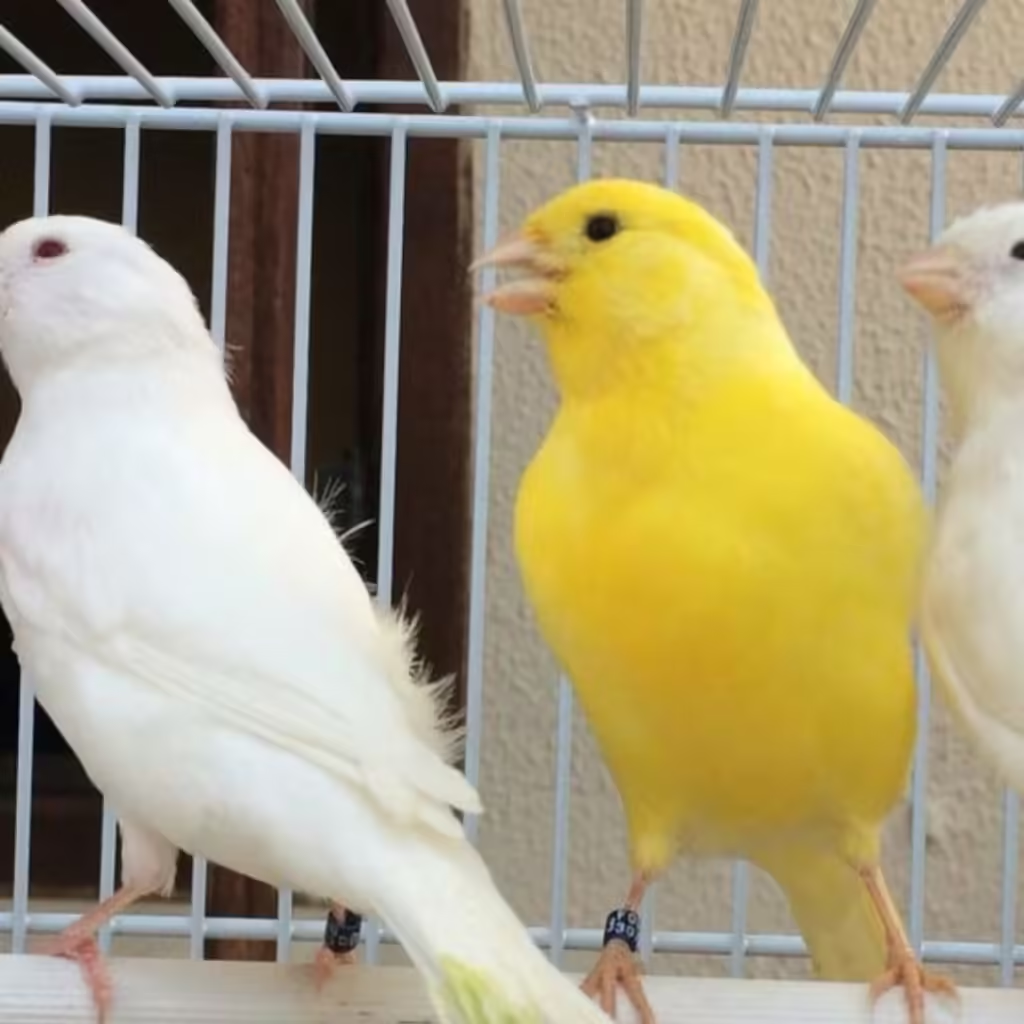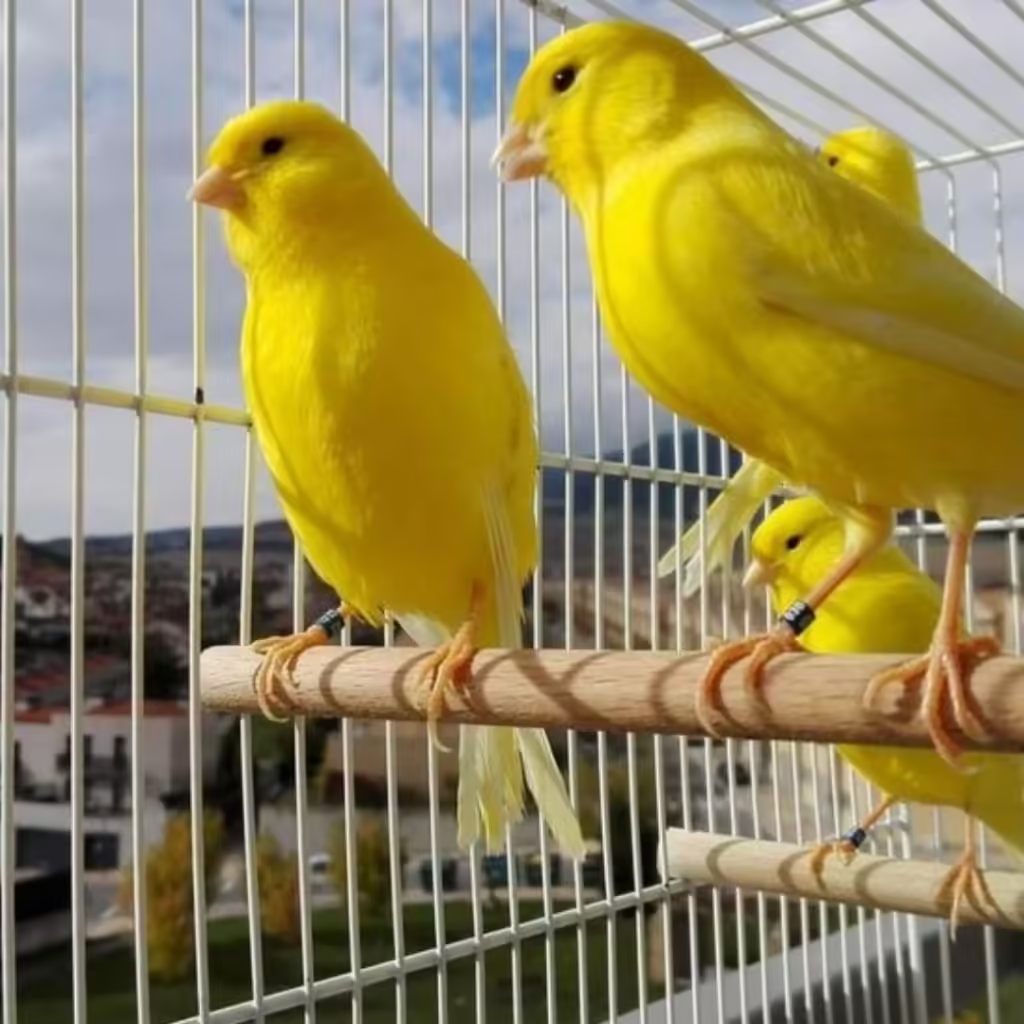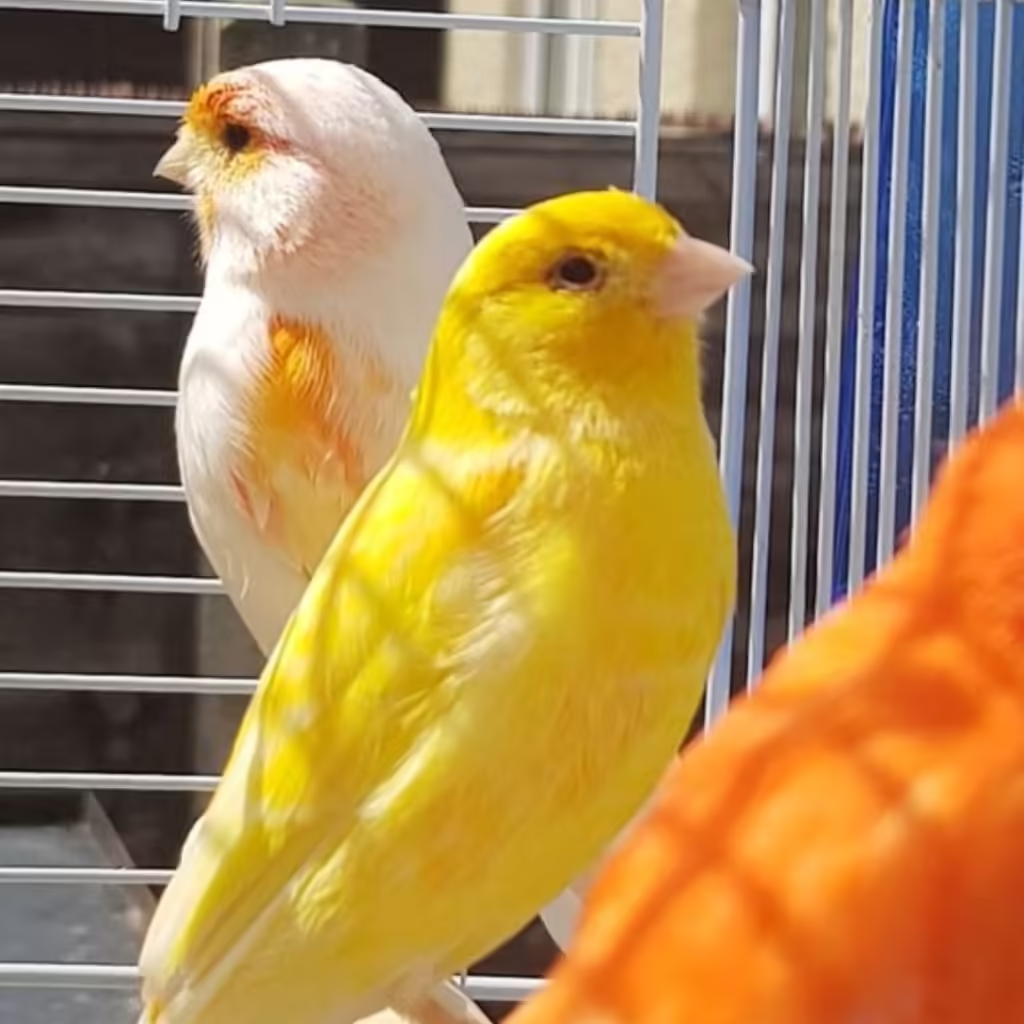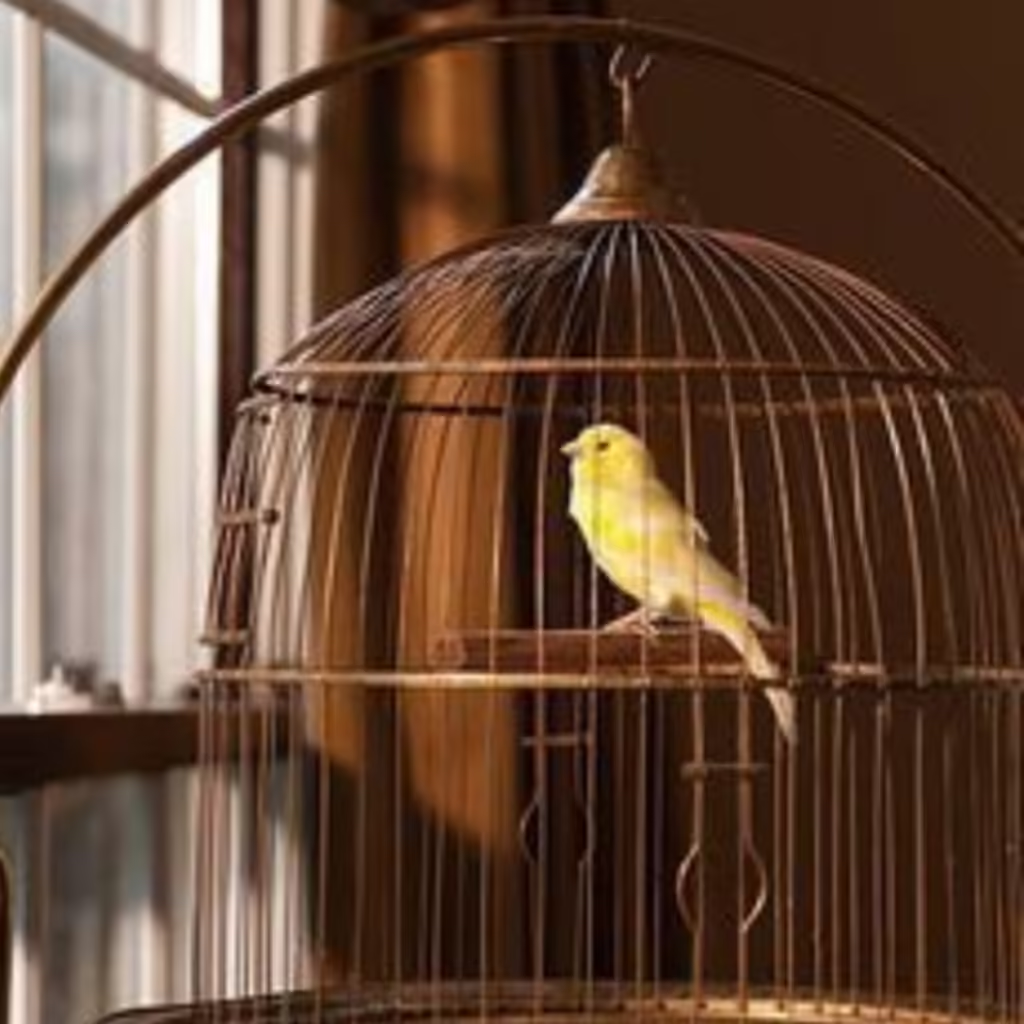Why Did My Canary Bird Stop Singing: Canaries are cherished for their vibrant colors and melodic songs, making them popular pets worldwide. However, it can be concerning when your canary suddenly stops singing. Understanding the reasons behind this behavior and knowing how to encourage your canary to sing again can help ensure your feathered friend is happy and healthy.
Also Read: Top 5 Smartest Birds in the World
Common Reasons Why Canaries Stop Singing

Stress and Environmental Changes
Canaries are sensitive creatures that can be easily stressed by changes in their environment. Moving to a new home, a change in the cage location, or the introduction of new pets can cause significant stress, leading to a cessation of singing.
Moulting Season
Moulting, the process of shedding and regrowing feathers, occurs once or twice a year. During this period, canaries might stop singing as they redirect their energy towards feather growth. This is a natural and temporary phase.
Health Issues
Illness or discomfort can cause a canary to stop singing. Respiratory infections, mites, and other health problems can affect their overall well-being. Regular check-ups with a veterinarian can help detect and treat any underlying health issues.
Age and Maturity
Young canaries typically start singing around six months of age. If your canary is younger, it might not have developed its full singing capability yet. Conversely, older canaries might sing less frequently due to age-related changes.
Diet and Nutrition
A poor diet can impact a canary’s singing ability. Ensuring your canary receives a balanced diet with essential nutrients is crucial for its overall health and vocal performance.
How to Get a Canary to Sing Again

Provide a Comfortable Environment
Ensuring your canary has a comfortable, stress-free environment is vital. Place the cage in a quiet area away from drafts and direct sunlight. A stable and familiar setting will help your canary feel secure and more likely to sing.
Maintain a Healthy Diet
A well-balanced diet rich in seeds, fruits, and vegetables is essential. Supplements like cuttlebone can provide necessary minerals. Fresh water should always be available. Proper nutrition supports overall health and promotes singing.
Encourage Natural Light and Proper Lighting
Canaries thrive with natural light. Ensure the cage is exposed to natural sunlight or use a full-spectrum light to mimic natural daylight. Adequate lighting helps regulate their biological rhythms and encourages singing.
Introduce Music or Sounds
Playing music or natural bird sounds can stimulate your canary to sing. Canaries are responsive to auditory stimulation, and hearing other birds sing can inspire them to join in.
Provide Social Interaction
Interaction with their human caregivers can make a significant difference. Talk to your canary regularly and spend time near the cage. This interaction can build trust and make your canary feel more comfortable and inclined to sing.
Ensure Proper Sleep
Canaries need about 10-12 hours of uninterrupted sleep each night. Cover the cage with a light cloth in the evening to create a dark, quiet environment conducive to rest. Adequate sleep is essential for their overall health and vocal activity.
Check for Health Problems
If your canary continues to refrain from singing despite a comfortable environment and proper care, consult a veterinarian. Health issues might be the underlying cause, and professional advice can help address any medical concerns.
Also Read: Pros & Cons of Owning an African Grey Parrot
What Time of Day Do Canaries Sing?

Morning Melodies
Canaries typically sing in the morning. The early hours of the day are when they are most active and energetic. This is a natural behavior linked to their circadian rhythms, which are influenced by light and dark cycles.
Midday Quiet Time
During midday, canaries might become quieter, taking a rest from their morning activities. This period of rest is normal and allows them to conserve energy for later in the day.
Afternoon Serenades
In the afternoon, you might hear your canary singing again. This second peak of activity is usually less intense than the morning session but still a common time for them to vocalize.
Evening Silence
As the evening approaches, canaries generally become quieter. They prepare for their rest period and are less likely to sing. Ensuring a peaceful environment during this time helps them wind down for the night.
Will a Male Canary Sing with a Female in the Cage?

The Role of Gender in Singing
Male canaries are the primary singers, using their songs to attract females and establish territory. Female canaries, on the other hand, are less likely to sing. When a male canary is placed with a female, his singing might change in frequency and intensity.
Encouraging Singing in Males
A male canary might sing more frequently if he is trying to attract a female. The presence of a female can stimulate his singing instinct as part of his mating behavior. However, once a pair bond is established, the male might sing less often, focusing more on other behaviors.
Impact on Female Singing
While it is rare, some female canaries might sing, especially if they were raised in isolation or without males. However, their singing is typically less complex and frequent compared to males. The presence of a male might not significantly change this behavior.
Social Dynamics
The social dynamics between a male and female canary can influence their singing patterns. If the pair gets along well, the male might be more inclined to sing. Conversely, if there is stress or conflict, both birds might be quieter.
Separate Cages for Singing Encouragement
If you want to encourage a male canary to sing, it might be beneficial to house him separately from the female. This separation can enhance his desire to sing as he attempts to attract the female from a distance.
Also Read: Are African Grey Parrots a Good Pet?

Conclusion – Why Did My Canary Bird Stop Singing?
Canaries are delightful pets known for their beautiful songs. If your canary stops singing, understanding the potential causes and implementing the right strategies can help restore its vocal performance. Ensuring a stress-free environment, providing a balanced diet, and maintaining regular health check-ups are key factors in promoting your canary’s well-being and singing. By paying attention to their needs and behaviors, you can enjoy the melodious presence of your canary once again.
Pingback: Why Is My Canary Not Laying Eggs? | Pet Care Sensei
Pingback: Where to Buy an African Grey Parrot | Pet Care Sensei
Pingback: 10 Fun Facts About Adélie Penguins | Pet Care Sensei
Pingback: Everything You Need to Know About Red Factor Canary